The Informatics Europe webinar series is designed as a platform for informatics scientists to share their latest research achievements in informatics and exchange insights into career development related to informatics research. All featured speakers (except the Career Development series) come from our member institutions, but the webinars are open to all, fostering knowledge exchange within the overall Informatics/Computer Science community.
Since September 2021, several series of live webinars have been hosted by informatics researchers and leaders from across Europe. Please register for the webinars through their dedicated links. Recorded versions are available within a week for two weeks exclusively to registered participants, after which the recordings will be posted to the Informatics Europe YouTube channel.
Interested in presenting a webinar? Please follow this link.
We look forward to your active participation in our upcoming webinars!
Our Ethics Working Group initiated the Ethics Webinar Series, and one of their goals is to increase literacy on ethics among Informatics lecturers and decision-makers (CEOs, policymakers, and political organizations).
Past Webinars
HCI4AI: The EU AI Act and the Crucial Role of Human-Computer Interaction in Developing Human-Centric AI
Speaker: Dympna O' Sullivan, TU Dublin (Ireland)
Download the presentation here and watch the webinar here.Read More
Date: 4 December 2023 (Mon)

Abstract:
The EU AI Act represents a landmark regulatory framework that addresses the ethical and legal challenges associated with artificial intelligence (AI) development and deployment within the European Union. One crucial aspect highlighted in the act is the emphasis on human-centric AI. Human-Computer Interaction (HCI) plays a pivotal role in achieving this objective by prioritizing the integration of user perspectives, ethical considerations, and the well-being of individuals into the design and implementation of AI systems. A robust HCI approach ensures that AI technologies are developed with a keen understanding of human needs, values, and societal implications, promoting responsible and inclusive innovation.About the speaker: Dympna O’Sullivan is the Academic Lead for the Digital Futures Research Hub at TU Dublin. Prior to joining TU Dublin, she worked as a lecturer in Computer Science at Aston University in Birmingham and as a Senior Lecturer in Health Informatics at City University of London. She completed her post-doctoral work with the Mobile Emergency Triage research group at the University of Ottawa. She holds a BSc and PhD in Computer Science from University College Dublin. Her research is in the area of Applied Social Computing and includes Computing Ethics. She investigates the societal impacts of emerging technologies, which include artificial intelligence. algorithmic decision-making and the associated privacy, fairness, transparency and bias implications of AI. She develops methodologies for Explainable AI which aim to enhance the intelligibility of AI systems for end users. Her research is underpinned by governance and legislation to ensure Trustworthy AI.
AI risk as a global environmental problem
Speaker: Olle Häggström, Chalmers University of Technology (Sweden)
Download the presentation here and watch the webinar here.Read More
Date: 3 November 2023 (Fri)
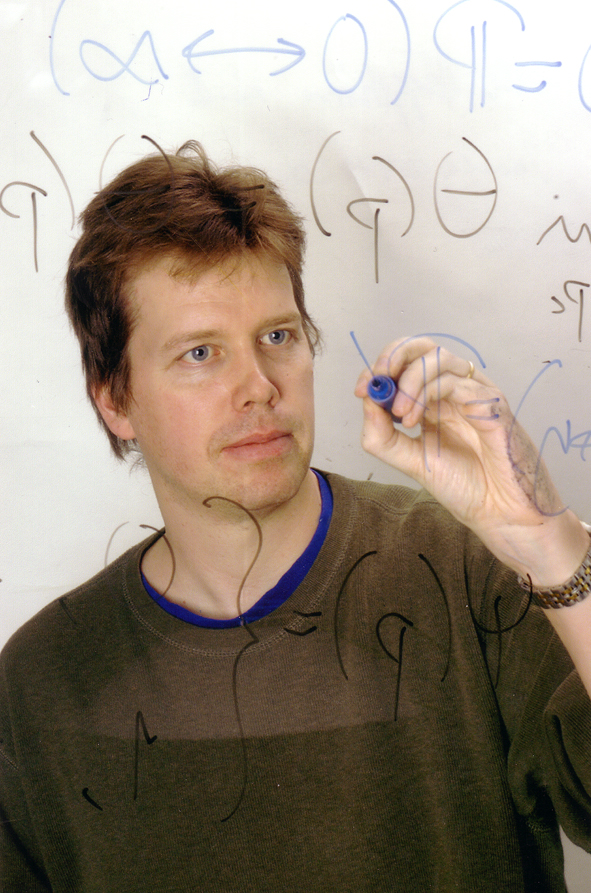
Abstract:
We are at a crucial moment in human history, when we are automating and offloading to machines the one key asset that has brought our tremendous success so far: our intelligence. At this point, to ask “What could possibly go wrong?” is obviously a rhetorical question. The speaker will explain why he thinks aspects of AI risk can properly be framed as a global environmental problem. But there is also hope, and he will discuss how we might get our act together and steer towards a long and flourishing future.About the speaker: Olle Häggström is a professor of mathematical statistics at Chalmers University of Technology and a member of the Royal Swedish Academy of Sciences. At present his main research focus is on AI futurology, existential risk and the long-term future of humanity. Of his five books, the two latest are Here Be Dragons: Science, Technology and the Future of Humanity (Oxford University Press, 2016) and Tänkande maskiner: Den artificiella intelligensens framtid (Fri Tanke , 2021). (In Swedish: Thinking Machines: The Future of Artificial Intelligence”)
Integrating Large Language Models into Higher Education: Guidelines for Effective Implementation
Speaker: Karl de Fine Licht, Chalmers University of Technology (Sweden)
Download the presentation here and watch the webinar here.Read More
Date: 29 September 2023 (Fri)

Abstract:
The rise of large language models (LLMs) like OpenAI's GPT-4 has opened new possibilities in higher education, sparking debate about their role in educational curricula. This presentation will argue that the discussions have often missed the need for proper guidelines for LLMs' utilization. It emphasizes a transparent and inclusive approach involving faculty, administration, and students in decision-making. The importance of clear rationales for LLM guidelines and an effective implementation plan will be highlighted to foster acceptance and compliance.About the speaker: Karl de Fine Licht is an associate professor in ethics and technology at Chalmers University of Technology. He has a wide array of research interests, including AI in public decision-making and, more recently, AI in higher education. de Fine Licht is also a member of the ethics committee at the Chalmers AI Research Centre (CHAIR), and serves as a pedagogical leader (PEDUL). He is responsible for coordinating the implementation efforts at Chalmers related to AI tools in higher education.
Each society is constituted by individuals that are unique and diverse from each other. Diversity within any group or society is a winning factor. It implies the presence of different viewpoints and ideas that can significantly empower the group, leading to effective results.
Launched in June 2022, this Gender Equality in Informatics webinar series aimed to contribute to sharing best practices as well as relevant research about gender equality and diversity in computer science. The series is a way to strengthen both the understanding as well as the action perspective of this topic.
Informatics Europe, in collaboration with European Network for Gender Balance in Informatics (EUGAIN) COST Action, organised this webinar series.
Past Webinars
Challenges and Opportunities of Gender Inclusion Worldwide in Open-Source Software
Speaker: Ayushi Rastogi, University of Groningen (the Netherlands)
Watch the webinar here and download the presentation here.Read More
Date: 10 July 2023 (Mon) at 5pm CEST

Abstract:
The gender gap in the software industry is alarming and varies across regions. Are there different factors influencing gender differences worldwide? Do we need unique solutions to bridge the gender gap regionally? This talk shows how gender diversity has evolved with insights from open-source software. There is a silver lining with small yet significant improvements in gender diversity since 2014. The talk further presents the challenges and opportunities in gender inclusion worldwide.About the speaker: Dr. Ayushi Rastogi is an Assistant Professor in Software Engineering at the University of Groningen, the Netherlands. Over the years, she analyzed signals from software development activities to understand and improve developer productivity and promote diversity and inclusion. Several of her works are in collaboration with software companies, including Microsoft and Meta, and academic partners worldwide. She continues to solve problems relevant to the software industry and society. She is a member of the Equity, Diversity, and Inclusion working groups in the IPN - the Dutch ICT community, and Informatics Europe.
Several Female Support Activities Later – What have we learned?
Speaker: Gerti Kappel, TU Wien (Austria)
Watch the webinar here and download the presentation here.Read More
Webinar Date: 19 June 2023 (Mon) at 5pm CEST
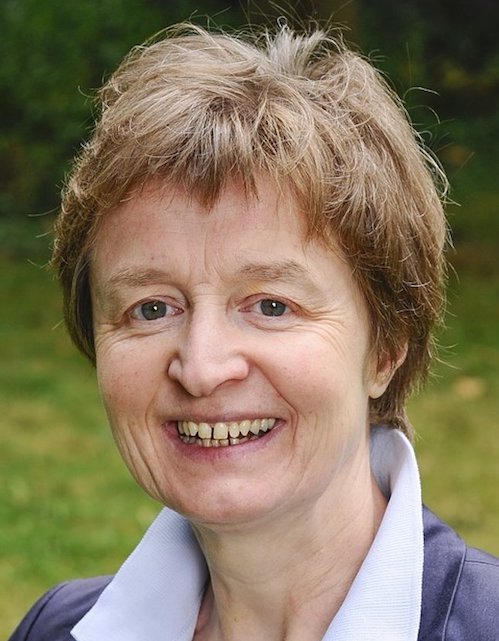
Abstract:
After 20+ years of implementing, nudging, and pushing female support measures at TU Wien, the learnings have become obvious. It’s all about role models, early opportunities to get in touch with computational thinking, starting even in primary school, networking opportunities from the very beginning when female students enter university, and affirmative action. The webinar will shed some light on our findings and showcase the path to receiving the 2022 Informatics Europe Minerva Equality Award.About the speaker: Gerti Kappel is dean of the Faculty of Informatics of TU Wien since beginning of 2020. She has been a full professor of business informatics at the Institute of Information Systems Engineering at TU Wien since 2001 and heads the Business Informatics Group. Previously, she was a full professor of computer science (database systems) and head of the Information Systems Department at Johannes Kepler University Linz from 1993 to 2001. From 2004 to 2007, she was Dean of Studies for Business Informatics. From 2003 to 2007, she initiated and led the internationally renowned Women Postgraduate College of Internet Technologies (WIT, www.wit.at), which paved the way for several ongoing support programs for women at university level. From 2014 to 2017, she was on the Board of Trustees of the Austrian Science Fund (FWF). From 2016 to 2019 she was on the Dean's Team of the Faculty of Informatics, responsible for Research, Diversity and Finance. Her current research interests include Model Engineering, Web Engineering, and Process Engineering with a special focus on cyber-physical production systems. Her concern for the unity of research and teaching is evidenced by the scientific textbooks "UML@Work" (dpunkt.verlag, 3rd edition, 2005, co-author), "UML@Classroom " (Springer, 2015, co-author) and "Web Engineering" (Wiley, 2006, co-editor).
The Gender-Equality Committee at IRISA/Inria Rennes
Speakers: Nicolas Markey, Camille Maumet, Anne Siegel, IRISA/Inria Rennes (France)
Watch the webinar here and download the presentation slides here.Read More
Webinar Date: 22 May 2023 (Mon) at 5:00pm CEST
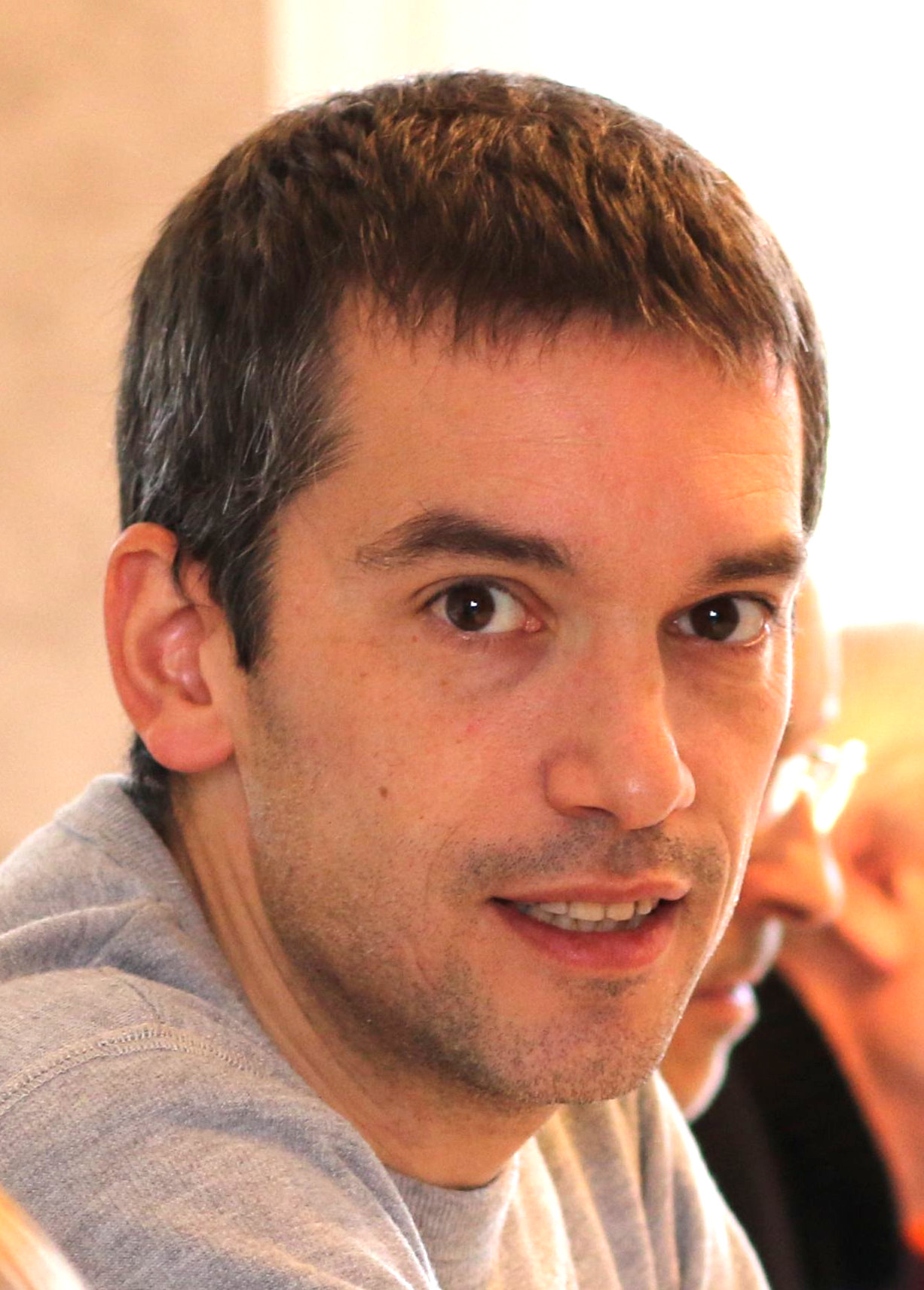
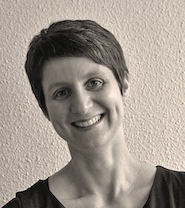
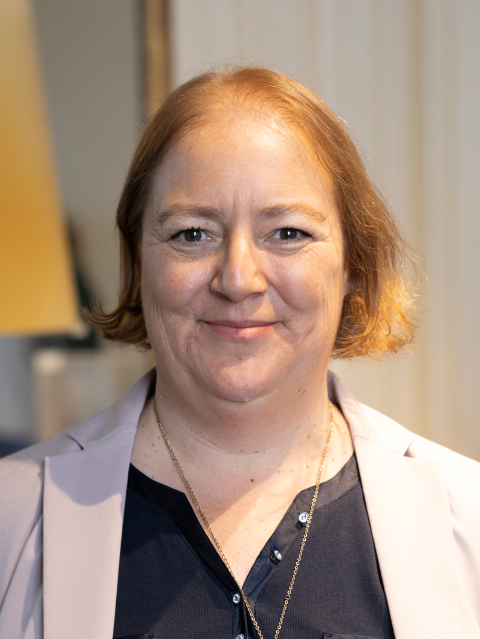
Abstract:
The gender-equality committee of IRISA and Inria Center at Rennes University was created in 2017. It gathers ca. 15 active members, who have initiated numerous actions to help women blossom and develop their careers in the institute's 80%-masculine laboratory; these actions include a mentoring programme, coaching for applications, women-only discussions, a library of feminist books, a series of conferences on topics related to gender equality, etc. The speakers will present some of these actions and the impact they had in the lab, and discuss our plans for the future.About the speaker:
Nicolas Markey is a CNRS researcher at IRISA/Inria Rennes. His research focus is in the development of formal methods for ensuring correctness of computer systems, especially with quantitative aspects. He obtained his PhD in computer science from University of Orleans in 2003 on the study of various temporal logics for model checking, and spent a one-year postdoctoral stay at Université Libre de Bruxelles, working on verification and synthesis of real-time systems. He was recruited at CNRS in 2004, working at École Normale Supérieure de Cachan, before joining Rennes University in 2016. He supervised 12 PhD students and 9 postdoc students. He participated in several national and european projects, and in particular was the coordinator of the H2020 Fet Open project Cassting. He currently is responsible for the department "Languages and Software Engineering" at IRISA.
Camille Maumet is a research scientist in neuroinformatics at Inria, Univ Rennes, CNRS, Inserm in Rennes, France. She studies neuroimaging reproducibility. Her current research focuses on the variability of analytical pipelines and its impact on our ability to use and reuse brain imaging datasets. She obtained her PhD in computer science at the University of Rennes on the analyses of clinical neuroimaging datasets in functional magnetic resonance imaging. She was then a postdoctoral research fellow at the University of Warwick and the University of Oxford, where she focused on meta-analyses and standards for neuroimaging data sharing. She is also an open science advocate, involved in the development of more inclusive research practices and community-led research and participates in many collaborative efforts including Brainhack, the INCF, and the Open Science Special Interest Group of the Organization for Human Brain Mapping that she chaired in 2020.
Anne Siegel is a research director at CNRS since 2010 and works at the IRISA lab, the Institut de recherche en informatique et systèmes aléatoires, in Rennes, in the Bioinformatics Dyliss Group. Her research activities in bioinformatics are focused on interfaces between computer sciences and biology: she develops symbolic methods for knowledge representation and integration, in order to analyse large-scale biological systems. She obtained her phD in mathematics at the University of Aix-Marseille. She served in different national committees (comité national du CNRS, inria evaluation committee). She was the leader of the Dyliss bioinformatics team in the laboratory and then the head of the department “Data and knowledge management”. She also served as Scientific deputy and now as Deputy Scientific Director for the computer science department of the headquarters of CNRS. She was involved in several gender equality initiatives: inria gender equality committee, creation of the IRISA-lab gender equality group, and now in charge of the gender equality policy in the computer science laboratories of CNRS.Promoting Gender Balance and Diversity in Informatics Through A Better Involvement of Young People
Speaker: Anna Szlavi, Norwegian University of Science and Technology (Norway)
Watch the webinar here and download the presentation slides here.Read More
Webinar Date: 8 May 2023 (Mon) at 5:00pm CEST
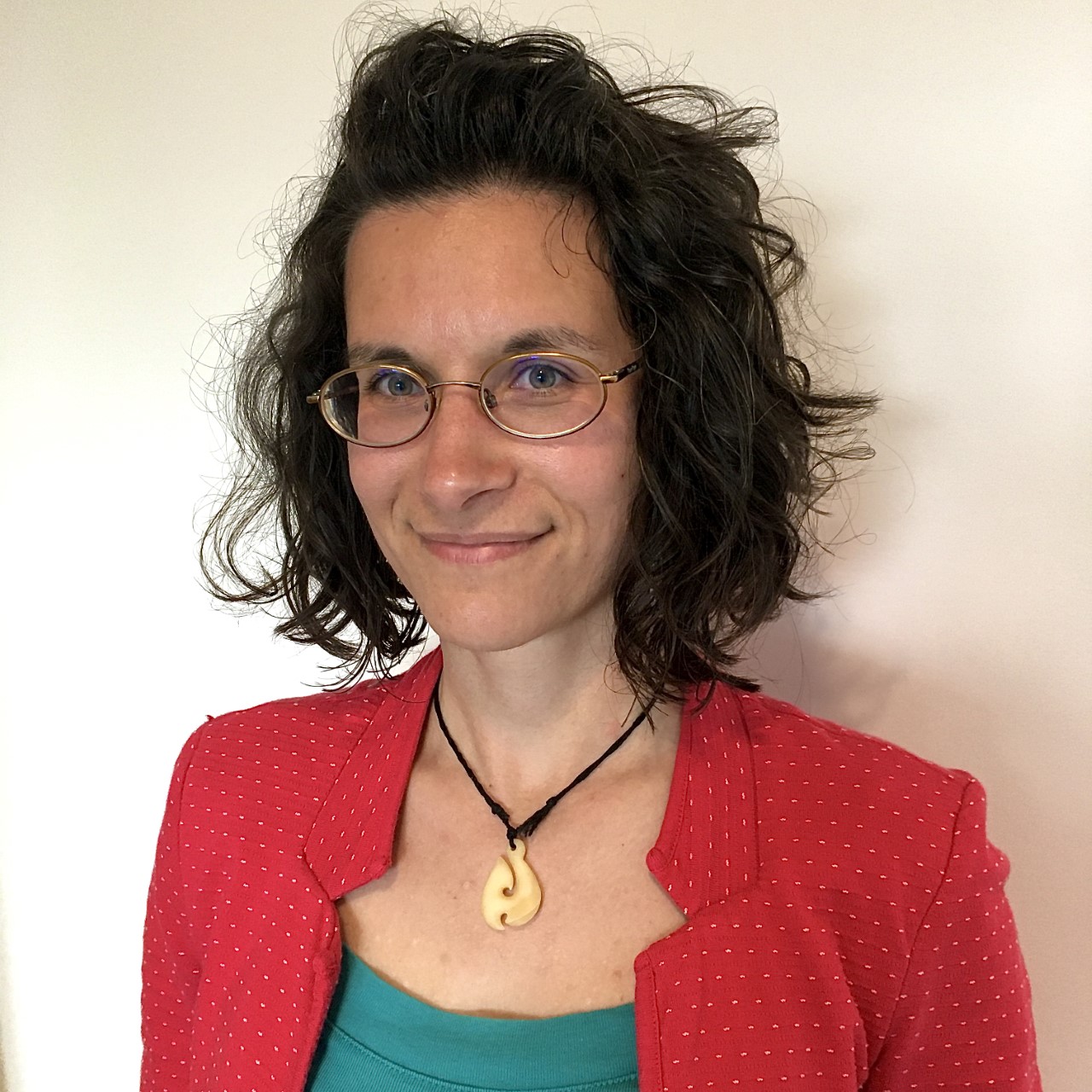
Abstract:
There is a constantly growing need for skilled professionals in the computing field, which poses challenges for finding the right people for the job. According to the 2022 Digital Economy and Society Index, 55% of companies have problems
filling their tech positions. At the same time, the computing sector is going through a diversity crisis, as the majority of its players are Global Northern, heterosexual, white, able-bodied, cis men. Technology permeates our lives, so a lack of diversity in the tech industry, especially when designing software, can lead to bias and exclusionary user experiences. As a consequence, we need to attract young people -- for instance, Generation Z (GenZ), born between the mid-1990s and the 2010s -- to computing. Moreover, there is a need for actions with a retention plan and a strategy to guide a more diverse group toward leadership roles both in academia and industry. Even though the awareness about Diversity, Equity, and Inclusion (DEI) is continually being raised, interventions that focus on inclusiveness are still necessary. With the present talk, the speaker aims to present EUGAIN, a Horizon Europe-sponsored COST Action, whose purpose is to create a European network that enhances gender balance and diversity in the field of computing. More specifically, she will focus on a recent intervention project, designed by the Action, with the aim of including younger people in computing. According to research, GenZ cares about social values and a meaningful contribution to society, that is, DEI, as part of their work. Within the frames of this project, the speaker and her team collected testimonials by stakeholders working in computing and performed content analysis to investigate to what extent the experiences listed by CS professionals and the interests of GenZ align with one another. Findings show that professionals in the field recognize the social embeddedness of computing, which aligns with younger students’ values and confirms that computing is a valid choice to achieve their goals of making a positive change in society. With this talk, the speaker is to contribute to a better alignment of how to design interventions for including younger people, thus enhancing diversity and gender balance in computing.About the speaker: Anna Szlavi is a postdoctoral researcher at the Norwegian University of Science and Technology (NTNU), in Trondheim, Norway. Her research focuses on Diversity, Equity, and Inclusion (DEI), more specifically gender balance, in computing. With an interdisciplinary background, she approaches DEI through the lenses of intersectionality and explores specifically mentoring as a means of building diversity in computing. She is the Young Researcher and Innovator Coordinator of COST Action 19122 EUGAIN, a European-level project that aims to build a European network for gender balance in computing. In her role as the YRI Coordinator, she is building a peer support network for early career academics in order to enhance the retention and involvement of (cis and non-cis) women in computing. She is also in the Executive Committee of Erasmus+ project Women STEM UP, which concentrates on gender balance in STEM education. As the leader of WP3, Anna is responsible for supervising the creation of a Leadership and Inspiration Academy and mentorship system in the 5 European partner institutions.
Technological University Dublin – Case Study of Gender Balance Initiatives in Computer Science
Speaker: Susan McKeever, TUDublin (Ireland)
Watch the webinar here and download the presentation slides here.
Read More
Webinar Date: 24 Apr 2023 (Mon) at 5:00pm CEST
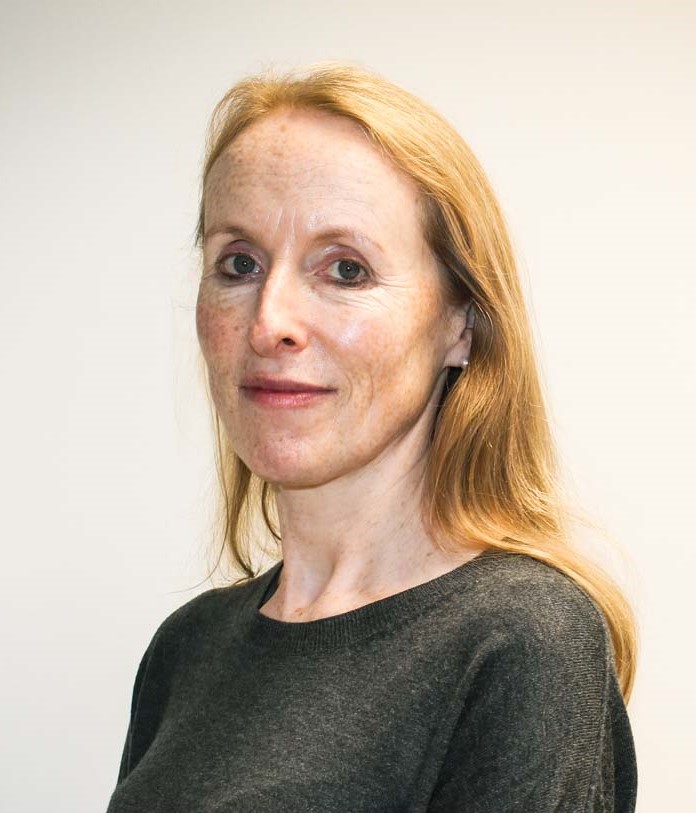
Abstract:
TU Dublin, like many universities, has faced the problem of imbalanced gender intakes in their computing courses. Over the past number of years, the School of Computer Science has undertaken a number of active steps to improve both the recruitment and retention of female students. The School has seen a marked improvement in gender balance, moving it to one of the top-performing computer science schools in the country in terms of gender balance. Their tactics have ranged from targeted programme offerings that attract females through to really putting themselves in the shoes of their female students to see how to make their college time a better experience. In this webinar, the speaker will take you through the details of what the School has done, and what they are continuing to work on – to bring and keep more females in the sector.About the speaker: Susan McKeever is the Head of Data Science and AI in the School of Computer Science at TU Dublin School of Computer Science. She has a deep interest in addressing gender imbalance in STEM, and has led a number of initiatives that have contributed to TU Dublin’s high rankings on both student and staff gender balance in computer science. She coordinated a winning Minerva award initiative, and was a project member of the international W-STEM initiative to boost gender balance in South American universities. In addition to gender balance research and initiatives, her main research areas are in the area of application of machine learning and AI to real-world problems. Examples of current projects include abusive content moderation and child abuse detection in social media, and the application of AI to improve both heart problem detection and the development of eye health outcomes in premature babies. Prior to joining academia, Susan worked as a consultant for Accenture.
Alice & Eve/Recommendations on Hiring and Promoting Women for CS Departments
Speaker: Marieke Huisman, University of Twente (the Netherlands)
Watch the webinar here and download the presentation slides here.
Read More
Webinar Date: 23 January 2023 (Mon) at 5:00pm CET
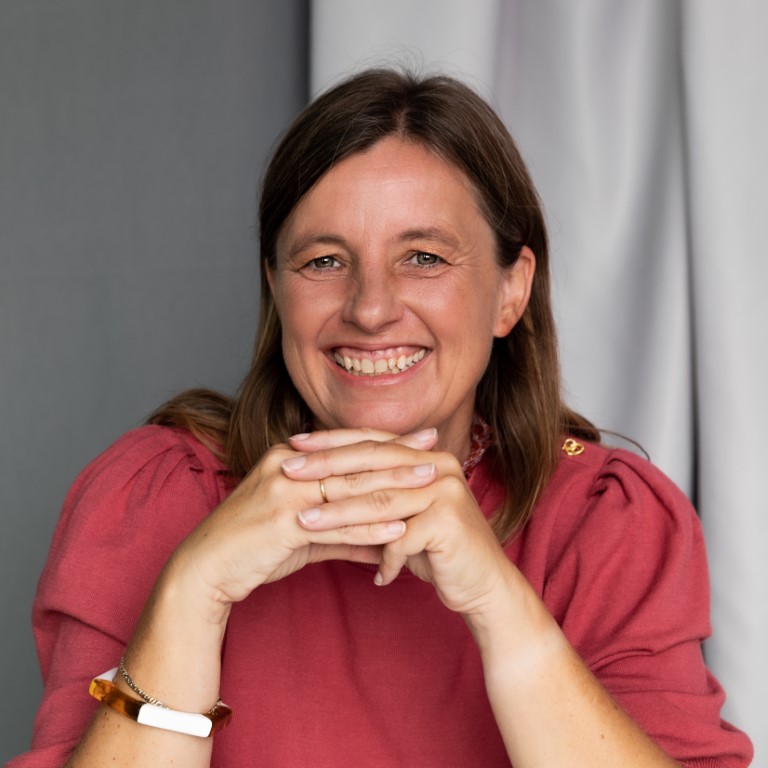
Abstract:
In this talk, Prof. Huisman will discuss two different initiatives related to diversity & inclusion, in which she has been involved over the last years.
In January 2020 the first Alice & Eve event at the University of Twente was organised. Alice & Eve, a celebration of women in computing in the Netherlands, was organized as a one-day event open to everybody, from Bachelor's and Master's students up to full professors. The event featured a symposium with contributions from and about female computer scientists, a poster contest and an exhibition portraying the achievements of 25 women in computing. The exhibition was accompanied by a booklet with more in-depth information about these 25 women. Alice & Eve is now turning into an annual event. Moreover, a digital version of the exhibition has been made, with added information about another 5 female computer scientists.
In 2021, the Dutch national working group on equity, diversity and inclusion in computer science choose the hiring and promotion of female researchers as one of her action points. Representatives of all Dutch CS departments have been interviewed about do’s and don’ts in their hiring practices. Based on these interviews, a report with concrete recommendations was created, which was then discussed with the heads of the Dutch computer science departments.
In this talk, Prof. Huisman will discuss both activities, talk about lessons learned and their future plans.About the speaker: Marieke Huisman is a professor in Software Reliability at the University of Twente. She is well-known for her work on program verification of concurrent software. In 2011, she obtained an ERC Starting Grant, which she used to start development of the VerCors verifier, a tool for the verification of concurrent software. Currently, as part of her NWO personal VICI grant Mercedes, she is working on further improving verification techniques, both by enabling the verification of a larger class of properties, and by making verification more automatic. Since 2019 she is SC chair of ETAPS. Besides her scientific work, she also actively works on topics related to diversity, equity and inclusion, as well as science policy. She chairs the national working group on on equity, diversity, and inclusion in computer science, chaired the advisory board on diversity and inclusion at the University of Twente, and she also is a member of the executive board of VERSEN, the Dutch assocation of software researchers, and chaired this association from 2018 until 2021.
Removing Barriers and Strengthening Self-Assurance of Women in Computer Science:
From Discovery of Own Talent to Professional ConfidenceSpeaker: Ute Schmid, University of Bamberg (Germany)
Watch the webinar here and download the presentation slides here.
Read More
Webinar Date: 7 November 2022 (Mon) at 5:00pm CET
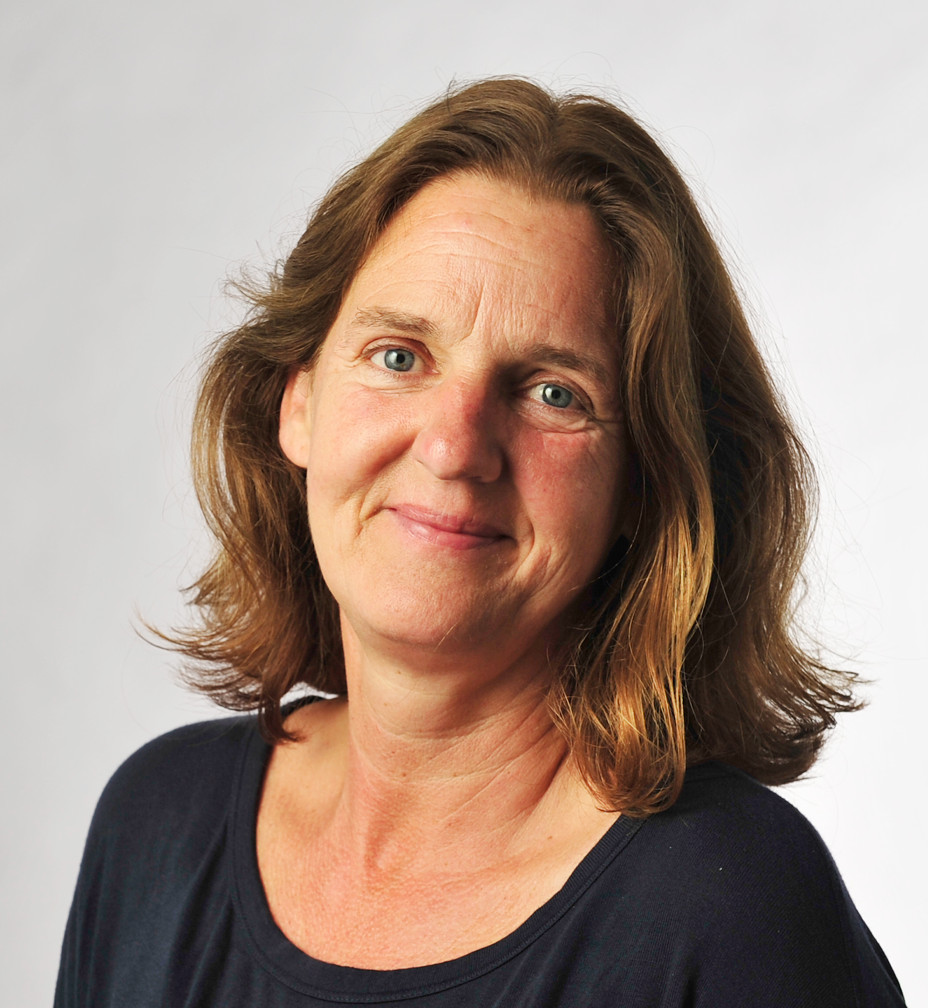
Abstract:
Despite a growing number of activities, women are still underrepresented in computer science in academia as well as industry. Consequently, continued effort is necessary to implement effective measures to encourage and to investigate barriers which hinder women to engage in computer science. In the talk, Ute Schmid will present different types of measures which are designed to (a) help young girls to discover their own talent and interest in computer science, and (b) encourage female students to persue more ambitious career plans and follow their vocational interests. Specifically, it will be discussed how role models can help to realize that pursuing an academic career or a leadership position in industry can be succesfully balanced with family responsibilities. Finally, empirical findings are presented which highlight how effective different measures are to strengthen self-assurance of women in computer science.About the speaker: Ute Schmid is a professor of Applied Computer Science at University of Bamberg, leading the Cognitive Systems group. She has also a background in psychology and her research focus is in cognitive AI, mainly combining machine learning with knowledge-based approaches and methods for explanatory and interactive machine learning. Ute Schmid is women's represenative of her department since 2005 and in 2018 she won the Minerva Gender Equality Award of Informatics Europe for her university. She initiated a variety of measures to support women in computer science, such as regular hands-on workshops for girls of different age groups, a mentoring program pairing highschool students with computer science students, and an annual seminar for on gender aspects of informatics. Currently, she is involved in the European Network For Gender Balance in Informatics.
Challenges on Academic Path as Female Informatics Scientists
Speaker: Prof. Simona Motogna, Babes Bolyai University (Romania)
Watch the webinar here and download the presentation here.
Read More
Webinar Date: 10 October 2022 (Mon) at 5:00pm CEST
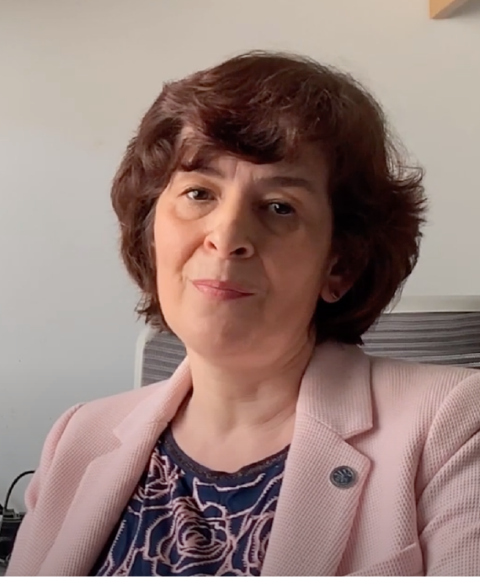
Abstract:
Higher education and public research institutions in Europe have encountered a o low interest of women for advanced studies or an academic career in Computer Science (CS). CS is a field intertwined with multiple dimensions of society, including the economic dimension and it has a reputation, corroborated by many studies over the years, of being a field in which men have been the makers of history. We try to identify which are the most important challenges that women perceive as threats and obstacles in their academic path in Informatics, and how can we build solutions to overcome them. We argue that only continuous and corroborated effort can have an impact on current status.About the speaker: Simona Motogna is full professor in computer science at Babes Bolyai University, Cluj-Napoca and leads the Software Engineering research center. Her research interests focus on Empirical Methods and Software Quality. She is an active member of the COST EUGAIN project, advocating Gender Balance in Computer Science for highschools, students and academics.
Good Practices throughout Academic Careers: from PhD to Professor
Speaker: Steve Kremer, Inria (France)
Watch the webinar here and download the presentation here.
Read More
Webinar Date: 12 September 2022 (Mon) at 5:00pm CEST
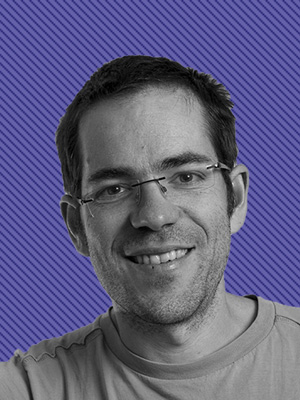
Abstract:
Despite growing awareness, women are still underrepresented in computer science. In this talk, we identify some of the key issues and problems, unpack reasons why women remain underrepresented, and detail strategies to improve gender balance and diversity throughout the academic career - from PhD to Professor. We also illustrate some of these strategies by existing initiatives. The work leading to these results was carried out by the Working Group "From PhD to Professor" of the COST Action EUGAIN CA19122 (European Network For Gender Balance in Informatics).About the speaker: Steve Kremer is Research Director at Inria Nancy where he is the head of the PESTO team on proof techniques for security protocols. His research focuses on formal methods and automated reasoning applied to security, in particular the verification of security protocols. His research has been awarded an ERC Consolidator grant in 2014. Since 2018 he is co-leading Inria's Committee on Gender Equality and Equal Opportunities. He is also part of the COST Action EUGAIN CA19122 (European Network For Gender Balance in Informatics) in which he is in charge of Working Group 3 - From PhD to Professor.
Current Actions and Opportunities Emphasising Gender Equality in IT
Speaker: Asst. Prof. Lili Nemec Zlatolas, University of Maribor (Slovenia)
Watch the webinar here and download the presentation here.
Read More
Recording Date: 11 July 2022 (Mon) at 5:00pm CEST
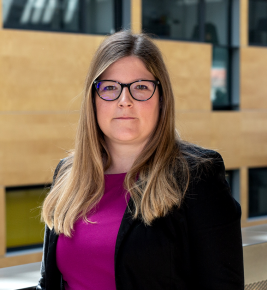
Abstract:
According to the European Commission’s Women in Digital Scoreboard, only 19% of ICT specialists and 33% of STEM graduates were female. The scoreboard confirms a substantial gender gap in specialist digital skills, and most worryingly, the figures have not changed over the last years. Gender-balanced teams usually have higher levels of productivity and better job satisfaction. Creating gender equality plans and following guidelines has been a priority for many institutions in the last few years because the European Commission introduced the Gender Equality Plan as a basic requirement for participants in the Horizon Europe programs. It is important that initiatives and projects are founded for reducing the gender gap in STEM fields. Even more important are indicators that organisations set to measure and reflect on their approach to reducing the gender gap and can be measured and reflected on. During the webinar, we will look at some of the existing initiatives and best practices as well as possible indicators to use.About the speaker: Lili Nemec Zlatolas is an assistant professor in informatics at the Faculty of Electrical Engineering and Computer Science at the University of Maribor. She obtained her PhD on the topic of social networking sites’ privacy. Her research work covers gender balance in STEM, information privacy and security, mostly focusing on user aspects of it and the use of privacy and security while using information communication technologies. She is a founding member of the Ladies in Informatics initiative at her Faculty. She is currently involved in COST action EUGAIN (European Network For Gender Balance in Informatics), H2020 project CONCORDIA (Cyber security cOmpeteNCe fOr Resarh anD InnovAtion) and Erasmus+ projects CIC and DiT4LL and is holding a bilateral project with the USA on gender diversity in STEM. She has also been actively involved in organising several international conferences held in Slovenia (EJC 2009, EAEEIE 2011, EJC 2015, LTEC 2015, EAPRIL 2018, ADBIS 2019 and IFIP SEC 2020) and has received the title of Slovenian Congress Ambassador 2021.
Lessons on the Increasing Role of Diversity in Tech - the Story of Czechitas
Speaker: Barbora Bühnová, Vice-Dean at Faculty of Informatics, Masaryk University & Co-Founder of Czechitas (Czech Republic)
Watch the webinar here and download the presentation here.
Read More
Recording Date: 7 June 2022 (Tue) at 5:00pm CEST
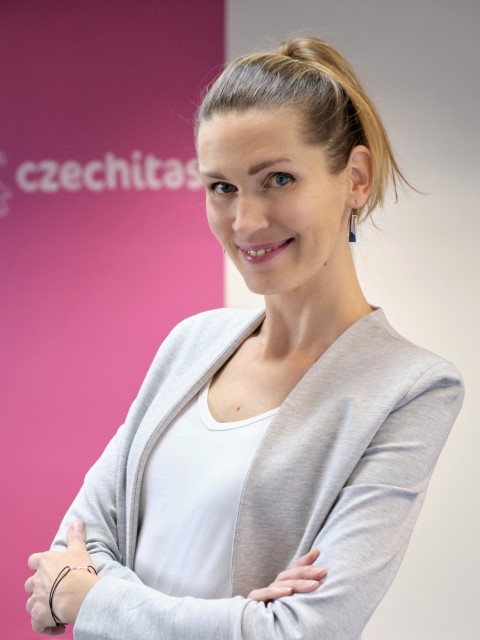
Abstract:
In an increasingly technology-driven world and a rapidly changing economic environment, tech/computing innovation and creativity cannot be cherished to its full potential if it is formed by homogeneous expertise. More so within the software engineering community, which needs to increasingly encourage innovation across boundaries. In this context, a question often comes up - Why do women choose particular interests, study programs and careers as alternative to tech/computer science? What are the triggers and benefits of these alternatives that tech/CS is lacking? In this webinar, Barbora Bühnová will share findings from a recent questionnaire study, revealing the frustrations that women feel along their way to tech/CS, whether they have stayed in, or have dropped out and are trying to re-establish the connection later. After identifying the frustrations, which all seem to be preventable, Barbora Bühnová will share a story of a non-profit organization, called Czechitas, which started with a simple idea of bringing tech closer to girls and girls closer to tech, and has over the past seven years transformed into a major social change in the Czech Republic, influencing over 30,000 women towards tech/CS education and career.About the speaker: Barbora (Bara) Bühnová is an Associate Professor and Vice-Dean at Masaryk University (MU), Faculty of Informatics (FI MU) in Brno. Following her research career in Germany and Australia, she now leads multiple research teams at FI MU (software architecture, critical infrastructures). Next to her academic activities, she is passionate about tech education among general public, being a Co-Founding and Governing Board member of Czechitas, a non-profit organisation aiming at making IT skills more accessible to youth and women (with 30,000+ graduates). Bara is a member of multiple initiatives engaging more women in tech (e.g. Informatics Europe working group Women in Informatics Research and Education (WIRE), EUGAIN: European Network for Gender Balance in Informatics) reaching across the entire Europe. Within EUGAIN, which involves 37 European countries to share best practices on the topic, she is the Vice-Chair of the whole network. Furthermore, she is a devoted speaker and author of multiple research studies on gender-sensitive tech education.
The Scientific Webinar Series is designed as a platform for renowned scholars to present and share their latest research achievements in informatics.
Past Webinars
Automated Program Reasoning
Speaker: Prof. Laura Kovacs, TU Wien (Austria)
Watch the webinar here and download the presentation here.
Read More
Date: 30 May 2022 (Mon) at 5:00pm CEST
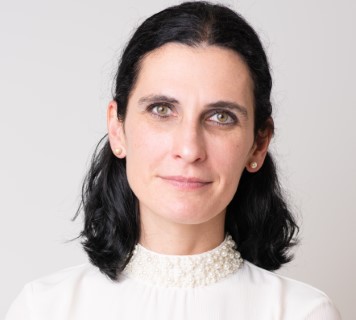
Abstract:
Automated reasoning, and in particular first-order theorem proving, is one of the earliest research areas within artificial intelligence. It is undergoing rapid development thanks to its successful use in program analysis and verification, security analysis, symbolic computation, theorem proving in mathematics, and other related areas. Breakthrough results in all areas of theorem proving have been obtained, including improvements in theory, implementation, and the development of powerful theorem proving tools.
In this talk, Prof. Kovacs will describe recent developments in applications of first-order theorem proving in program analysis, in particular in the setting of generating inductive loop properties and proving partial correctness of program loops.About the speaker: Laura Kovacs is a full professor in computer science at the TU Wien, leading the automated program reasoning (APRe) group of the Formal Methods in Systems Engineering Division. Her research focuses on the design and development of new theories, technologies, and tools for program analysis, with a particular focus on automated assertion generation, symbolic summation, computer algebra, and automated theorem proving. She is the co-developer of the Vampire theorem prover and a Wallenberg Academy Fellow of Sweden. Her research has also been awarded with an ERC Starting Grant 2014, an ERC Proof of Concept Grant 2018 and an ERC Consolidator Grant 2020.
Bioinformatics and Its Relation to Data and Computer Science
Speaker: Prof. Jaap Heringa, Vrije Universiteit (VU) Amsterdam (the Netherlands)
Watch the webinar here and download the presentation here.
Read More
Date: 24 March 2022 (Thu) at 5:30pm CET

Abstract:
Bioinformatics is at the crossroads of computer science, mathematics, biology and physical chemistry, and has become indispensable in modern biology and medicine. It is predominantly a data science, studying systems with billions of components, for example constituting an organism with a complex and dynamic relationship with its environment. Gaining actionable insight in molecular systems often requires detailed knowledge about the functioning and interactions of components, which should be implemented in large-scale analytics and modelling pipelines. Computational methods have abounded in bioinformatics, for example based on evolutionary considerations such as common ancestry, which allow comparative analyses of DNA or protein sequences across organisms, or based on network representations to model molecular interactions. More recently and given the multimodal and distributed nature of bioinformatics data resources, semantic web technologies and FAIR data principles have become increasingly important, the acuteness of which was underscored dramatically by the recent and ongoing Covid-19 pandemic. In this webinar, Prof. Heringa will give an introduction to bioinformatics, including its origin, historical developments and the type of research problems tackled in the field.About the speaker: Jaap Heringa is full professor of Bioinformatics at Vrije Universiteit (VU) Amsterdam, The Netherlands since 2002, and head of the Department of Computer Science at VU since 2018. He has been scientific co-director of the Netherlands Bioinformatics Centre (NBIC) from 2009-2013. Heringa has served as deputy Head of Node of ELIXIR-NL (i.e. the Dutch node of the ESFRI Landmark ELIXIR)) from 2013-2016, and is Head of Node since April 2016. Since 2014 he is director of the Netherlands Bioinformatics and Systems Biology Research School (BioSB) and as of January 2016 he is scientific lead of the Dutch Techcentre for Life Sciences (DTL). Heringa has been executive editor of Computational Chemistry and Biology (Elsevier) from 2014-2018 and was founding editor of Molecular Data Science (Elsevier) in 2018-2020. His areas of research are Bioinformatics and Systems Biology, while current research interests revolve around formal modelling strategies, sequence analysis, protein structure and interaction prediction, cancer-related data integration, molecular data science, data stewardship (FAIR data principles) and data-tools interoperability.
Programming Distributed Decentralized Applications
Speaker: Prof. Mira Mezini, Technical University of Darmstadt (Germany)
Watch the webinar here.
Read More
Date: 23 February 2022 (Wed) at 5:00pm CET
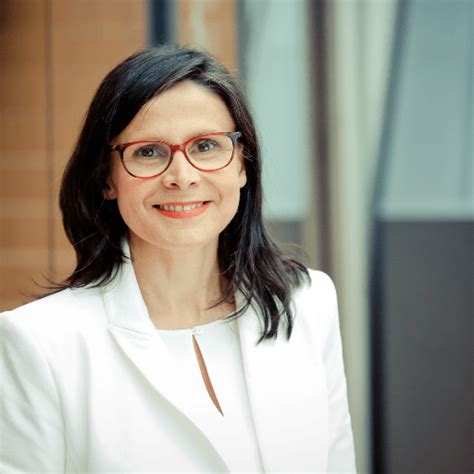
Abstract:
Today’s applications - ranging from mobile digital services (instant messengers, multiplayer games, etc.), collaborative workflows (Google Docs, Figma, Trello, etc.), real-time businesses (cross-organizational workflows, collaborative condition monitoring, etc.), autonomous vehicle services, production 4.0 software, and more - are very different from traditional ones: They run on globally distributed computing infrastructures, consistently interact with the outside world and are data-driven. In this talk, I will argue that to cope with challenges posed by these new computing realities we need programming models and technologies that offer safety and security properties by-design. More specifically, I will talk about language-integrated solutions that offer formally-proven consistency guarantees “out-of-the-box” in a decentralized and privacy-preserving manner and will present the ideas in the context of REScala (rescala-lang.com) - a library-based Scala extension.About the speaker: Mira Mezini is full professor of Computer Science at Technical University of Darmstadt and leads the Software Technology Lab. After her PhD in Computer Science at the University of Siegen in Germany, she spent two years as a visiting assistant professor at Northeastern University in Boston (USA), before joining TU Darmstadt in 2000. She is member of the board of the National Research Center for Applied Cyber Security ATHENE and spokesperson of the Hessian Center for Artificial Intelligence.
Mira has published more than 200 peer-reviewed papers, many of the them in the most prestigious venues in programming languages and software engineering. She is elected member of the German Academy of Science and Engineering (acatech) and has received various research awards, including IBM Eclipse Innovation Awards, a Google Research Award, the German IT Security Award, and an Advanced Grant of the European Research Council (ERC).Accurate and Reliable What-If Analysis of Business Processes: Is it Achievable?
Speaker: Prof. Marlon Dumas, University of Tartu (Estonia)
Watch the webinar here and download the presentation here.
Read More
Date: 18 January 2022 at 5:00pm CET

Abstract:
Business Process Management (BPM) is a cross-disciplinary field of study at the intersection between Informatics, Industrial Engineering, and Management Science. The goal of BPM is to provide conceptual frameworks, methods, and tools to enable organizations to continuously monitor and improve the way they perform work, in order to fulfill the ever-changing expectations of their customers and other stakeholders.A central activity in the field of BPM is business process redesign: Applying changes to a business process (a.k.a. interventions) with the aim of improving it with respect to one or more quantitative performance measures such as cycle time, cost, or defect rate. Examples of interventions include automating part of a business process, adding or re-deploying human resources, or changing the flow of activities in a process.
In this talk, we will discuss a decades-old problem in the field of BPM, namely "what-if process analysis". In simple terms, this problem can be posed as follows: How to reliably and accurately predict the impact of an intervention on a business process in terms of one or more business process performance measures? We will discuss the limitations of approaches based on discrete event simulation developed in the 1990s, which have been relatively successful in the context of repetitive manufacturing processes but have largely failed in the context of human-intensive processes. We will then present ongoing efforts to tackle this problem by combining observational data, experimental data, and domain knowledge using hybrid modeling methods drawing from the fields of discrete event simulation, machine learning, and causal inference.
About the speaker: Marlon Dumas is Professor of Information Systems at University of Tartu (Estonia) and co-founder of Apromore – a spin-off company that develops open-source solutions for process mining and optimization. His research focuses on data-driven methods for business process management, including process mining, predictive process monitoring and data-driven process simulation. He is recipient of an Advanced Grant from the European Research Council with the mission of developing algorithms for automated discovery and assessment of business process improvement opportunities from execution data.
Power of Algorithms in Discrete Optimisation
Speaker: Prof. Stanislav Živný, University of Oxford (UK)
Watch the webinar here and download the presentation here.
Read More
Date: 25 November 2021 at 5:00pm CET
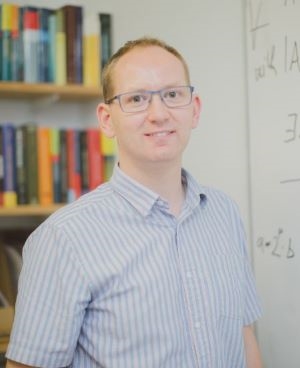
Abstract: Which discrete optimisation problems can be solved efficiently and why? Prof. Živný's research is concerned with designing efficient algorithms and finding the exact borderline of tractability. For a broad class of computational problems, known as constraint satisfaction problems (CSPs), we now have a good understanding of this fundamental question for exact solvability. In this talk, Prof. Živný will survey his work on the power of convex relaxations (such as linear and semidefinite programming relaxations) for constraint satisfaction problems.
About the speaker: Stanislav (Standa) Živný is a Full Professor of Computer Science at the University of Oxford, where he has been a faculty member since 2013. He is also a Tutorial Fellow at Oxford’s Jesus College. His PhD thesis received the 2011 ACP Doctoral Research Award. His research has been funded by a Royal Society University Research Fellowship and an ERC Starting Grant.
SMT Solving: Past, Present and Future
Speaker: Prof. Dr. Erika Abraham, RWTH Aachen University (Germany)
Watch the webinar here and download the presentation here.
Read More
Date: 21 October 2021 at 5:00pm CET
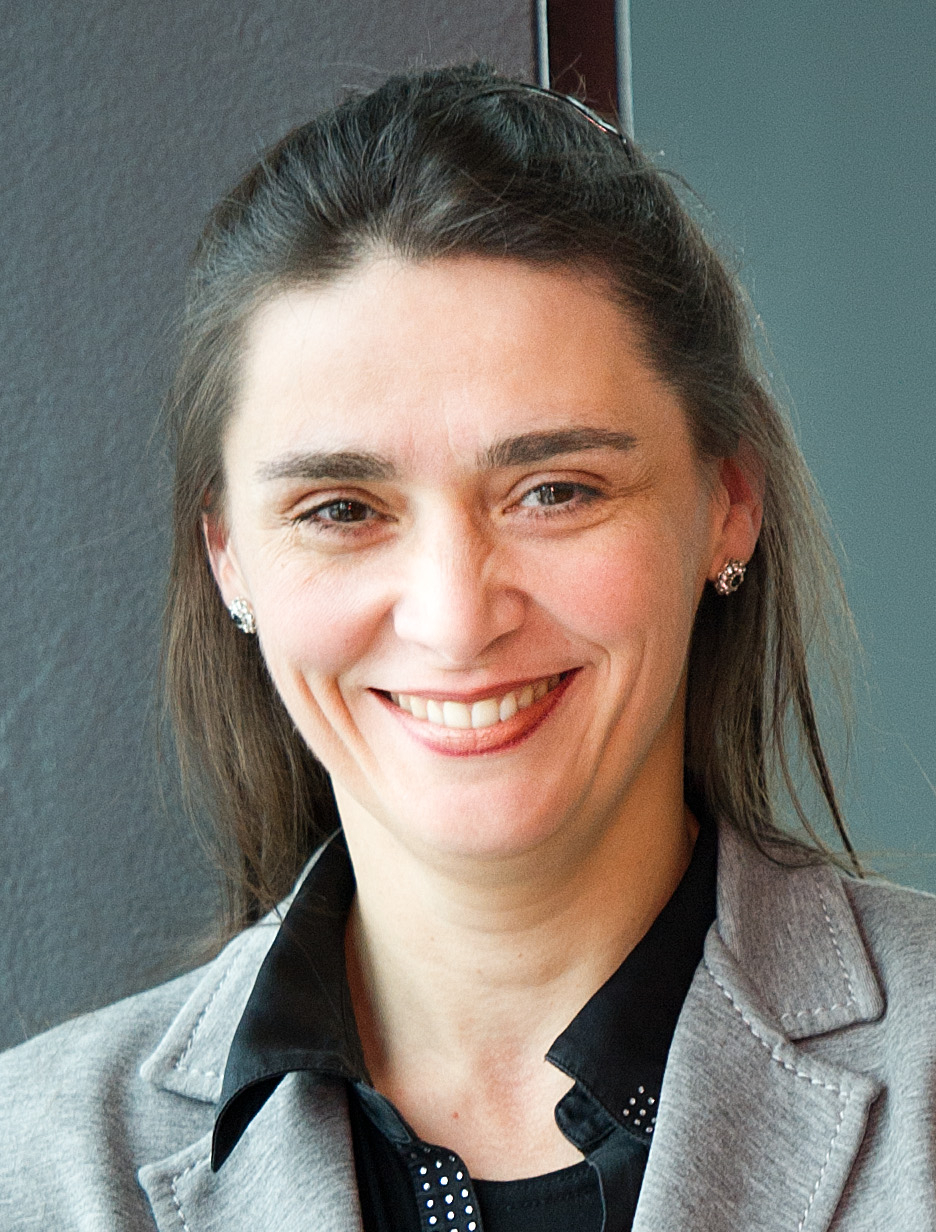
Abstract: Since the development of the first computer algebra systems in the '60s, automated decision procedures for checking the satisfiability of logical formulas gained more and more importance. Besides symbolic computation techniques, some major achievements were made in the '90s in the relatively young area of satisfiability checking, and resulted in powerful SAT and SAT-modulo-theories (SMT) solvers. Nowadays, these sophisticated tools are at the heart of many techniques for the analysis of programs and probabilistic, timed, hybrid and cyber-physical systems, for test-case generation, for solving large combinatorial problems and complex scheduling tasks, for product design optimisation, planning and controller synthesis, just to mention a few well-known areas. In this talk we give a historical overview of this development, describe shortly our own solver SMT-RAT, and discuss applications and some fascinating new developments for checking the satisfiability of real-arithmetic formulas.
About the speaker: Erika Abraham graduated at the Christian-Albrechts-University Kiel (Germany), and received her PhD from the University of Leiden (The Netherlands) for her work on the development and application of deductive proof systems for concurrent programs. Then she moved to the Albert-Ludwigs-University Freiburg (Germany), where she started to work on the development and application of SAT and SMT solvers. Since 2008 she is professor at RWTH Aachen University (Germany), with main research focus on SMT solving for real and integer arithmetic, and formal methods for probabilistic and hybrid systems.
Storing and Analyzing Viral Sequences through Data-driven Genomic Computing
What you always wanted to know about the COVID-19 virus and never dared to ask
Speaker: Prof. Stefano Ceri, Politecnico di Milano (Italy)
Watch the webinar here and download the presentation here.
Read More
Date: 22 September 2021 at 5:00pm CET

Abstract: In the first part of the seminar, Prof. Ceri will give a simple and data-inspired illustration of what is a viral sequence, what are mutations, how mutated sequences become organized forming a “variant”, what are the effects of individual mutations and of variants. Then, Prof. Ceri will illustrate the process of deposition of viral sequences to public repositories (GenBank, COGUK, GISAID). In the second part of the seminar, Prof. Ceri will discuss the systems that were developed within his group, thanks to ERC and EIT funding. Specifically, he will illustrate (i)ViruSurf, a search system enabling free meta-data driven search over the integrated and curated databases, now hitting about 3 million SARS-CoV-2 sequences, continuously updated from the above repositories; (ii)VirusViz, a data visualization tool for comparatively analyzing query results; (iii)VirusLab, a tool for exploring user-provided viral sequences; (iv) EpiSurf, a tool for intersecting viral sequences with epitopes - used in vaccine design. Prof. Ceri will also hint at ongoing projects for viral surveillance and for exploring a knowledge base of viral resources.
About the speaker: Stefano Ceri is a professor of Data Management at Politecnico di Milano. His main research interests are extending data management and then acting as data scientists in numerous domains - including social analytics, fake news detection, genomics for biology and for precision medicine, and recently studies concerning the SARS-CoV-2 viral genome. He is the recipient of two ERC AdG, “Search Computing” (2008-2013) and “data-driven Genomic Computing” (2016-2021). He received the ACM-SIGMOD "Edward T. Codd Innovation Award" (June 2013). He is an ACM Fellow.
The Career Development webinar series is a collection of webinars/online events targeting early career researchers in computer science and related disciplines.
Past Webinars
Thriving as a Doctoral Student in Informatics
Facilitators: Prof. Dr. Geraldine Fitzpatrick, TU Wien, Austria & Prof. Dr. Austen Rainer, Queen’s University Belfast, UK.
The summary of the webinar is available here: Board 1, Board 2, PDF Summary.
Read More
Date: 8 October 2021, 10:30-12:00 CET
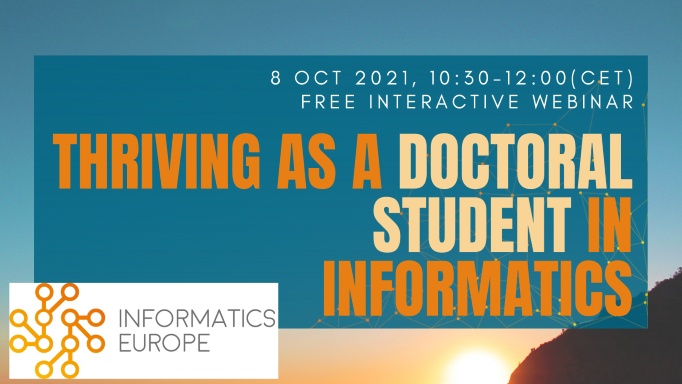
Informatics Europe wants to support and grow a thriving community of European PhD researchers and invites you to contribute to defining and growing this community.
- Meet like-minded PhD students from across Europe
- Network
- Share challenges and experiences
- Learn from each other
- Influence Informatics Europe’s action in this area
What are your challenges as a PhD student, especially in COVID times? What experiences can you share that would help others in a similar situation? What additional support would you find useful?
Here are some examples of challenges PhD students face during their studies:
- Doing the research itself (literature reviews, theory, methodology, critical thinking),
- Engaging with management (managing their time, managing their supervisors),
- Collaborating with others e.g., co-authorship, proper credit for their contributions,
- Engaging wider stakeholders (e.g., participation recruitment).
- Looking after yourself, especially as a result of COVID
In this webinar, we provide space for facilitated, small group discussion with feedback.
The webinar is co-led by Prof. Dr. Geraldine Fitzpatrick and Prof. Dr. Austen Rainer: two experienced Informatics academics and facilitators of Informatics Europe's Academic Leadership Development Course.
Free Interactive Webinar "Creating the New Academic Normal for Informatics Researchers"
Facilitators: Prof. Dr. Geraldine Fitzpatrick, TU Wien, Austria & Prof. Dr. Austen Rainer, Queen’s University Belfast, UK.
Invited Speaker: Prof. Matthijs Bal, University of Lincoln, UK.
Watch the video of the webinar featuring Prof. Geraldine Fitzpatrick here and read the results of the Menti poll here. Watch Prof. Bal's talk here.
Read More
Date: 25 June, 2020
What do we want to take forward into our New Academic Normal? What do we want to leave behind? How will we thrive, and not just survive? How can we lead ourselves and others in research, education and civic duty whilst working remotely? How can we strengthen our collegiality in physically-distancing spaces? How do we balance our academic and personal lives where boundaries between these become increasingly blurred? Those and further questions were addressed during the FREE 90-minute, interactive webinar.
In the webinar participants:
- received some seeding content on responding to, and learning from, these challenging times;
- networked with colleagues from across Europe;
- shared experiences and gained positive perspectives and new ideas;
- influenced Informatics Europe policy in this area.
The webinar was co-led by two experienced facilitators:
- Prof. Dr. Geraldine Fitzpatrick, TU Wien, Austria,
- Prof. Dr. Austen Rainer, Queen’s University Belfast, UK.
Invited speaker: Prof. Matthijs Bal, University of Lincoln, UK.
Academia beyond Covid-19: A psychological perspective
Abstract: The Covid-19 crisis has posed a number of challenges to universities and academics globally. Universities and academics will have to change in the near future in response to the crisis. However, there is very little known about the specifics of how academic life will look beyond the current crisis. In this (brief) talk, Matthijs Bal talked about the short- and long-term implications of the crisis, and what academics can do themselves. He would make use of the Manifesto for the Future of Work and Organizational Psychology which has been published in 2019. Watch Prof. Bal's talk here.
We provided space for facilitated, small group discussion and feedback (in Zoom breakouts) and crowdsourced larger-scale feedback (through Zoom chat), aggregate these, and distribute it to participants after the event. The strategic plan of Informatics Europe is to not only speak about curricula but also to recognize responsibility for the personal development of people. This webinar was the first step. The webinar was followed up with the online Academic Leadership Development Course in September 2020.
Download the webinar chat and worksheet feedback here, participant worksheet here.

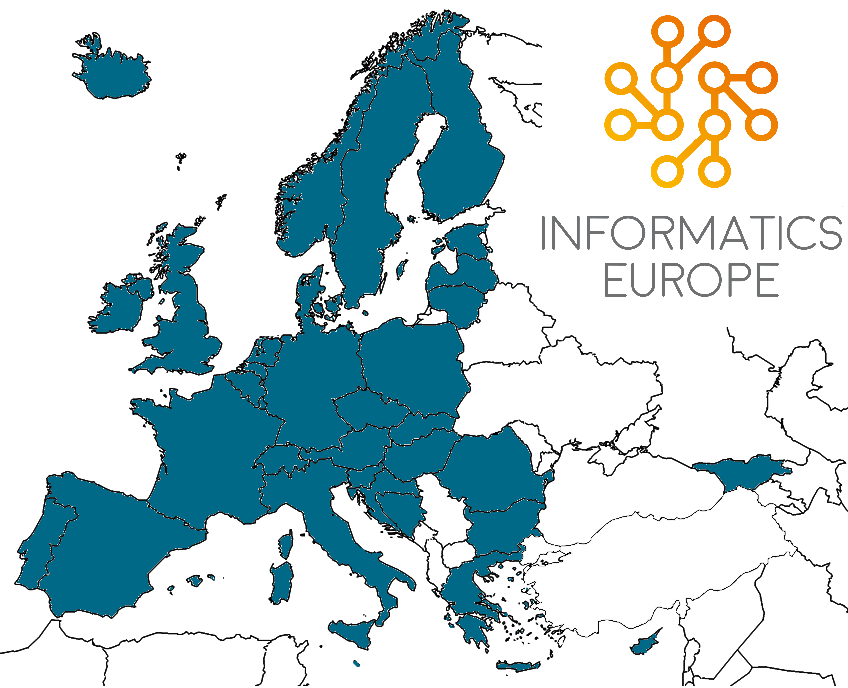
 Netlogica
Netlogica